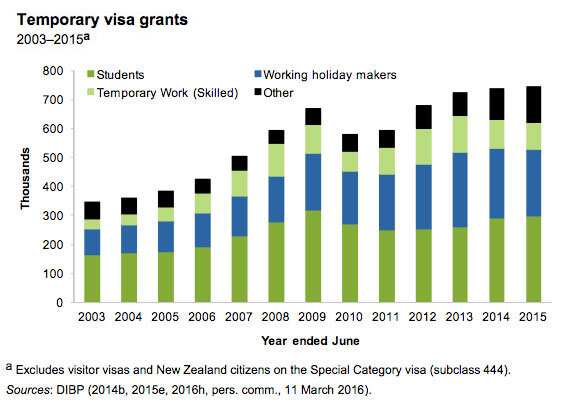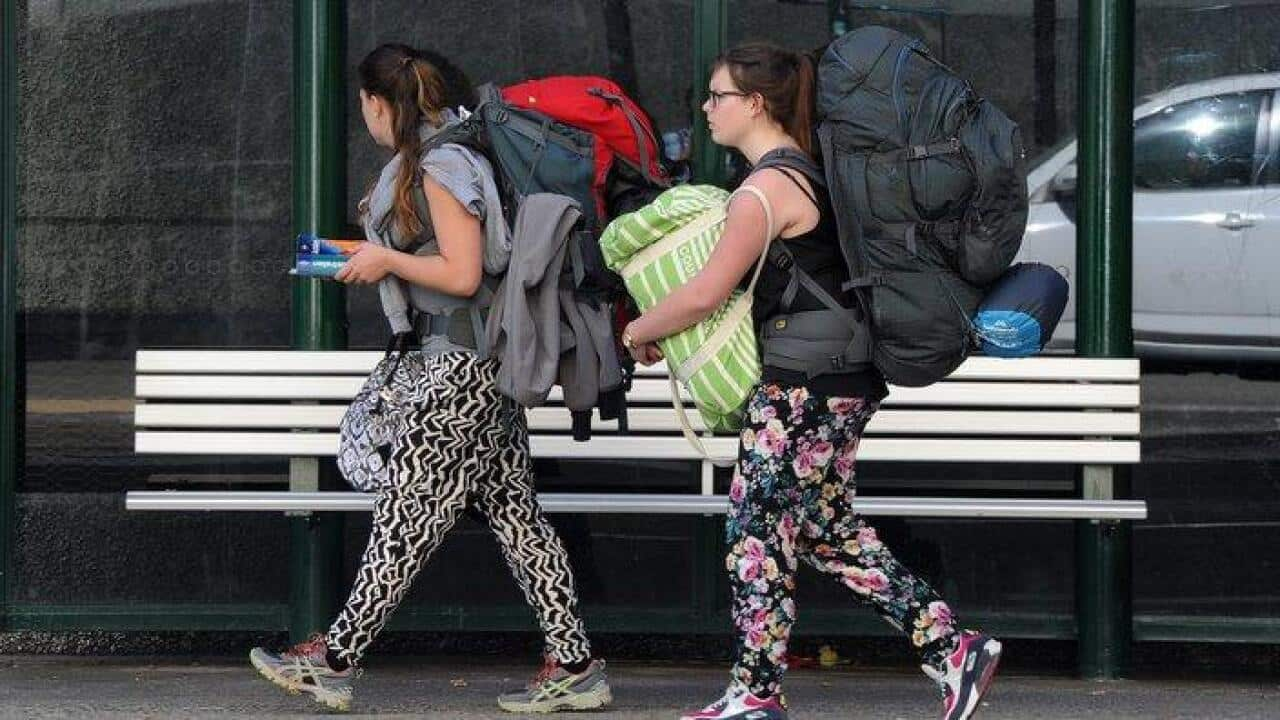The era of backpackers, foreign students and New Zealanders dominating Australia’s migrant intake may be approaching its end, as calls for an overhaul of the visa system mount.
The 'Migration: the economic debate' report from the Committee for Economic Development of Australia (CEDA), released on Thursday, calls to double annual permanent migration over the next forty years with a focus on skilled migration.
CEDA describes itself as a "national, independent, member-based organisation providing thought leadership and policy perspectives on the economic and social issues”. It has 750 members made up of businesses, industry bodies and government organisations.
Its report is the second to call for change in two months, following the release in September of a Productivity Commission investigation into the country's migrant intake.
It makes the case for major reforms into the temporary visa stream, including the introduction of a cap on working holidaymakers and a review of backpacker and student visas, and revives the possibility of a “guest worker” program to fill low-skilled jobs.
The report also calls for improvements to the Temporary Work (Skilled) (subclass 457) visa, skill and language testing for permanent migrants, and targeting migrant settlement locations.
CEDA Chief Executive Professor Stephen Martin said Australia's migration record had driven economic benefits, but current policy was not without problems.
“The report finds that Australia could absorb a greater migration intake, but this could only be done in conjunction with complementary policy that addresses adverse consequences of population growth such as infrastructure provision, urban congestion and environmental degradation,” he said.
From temporary to permanent
The report describes how temporary migration has become "the dominate element of Australia’s immigration program”.
It argues this is problematic because this stream is "uncapped and allowed to fluctuate with the level of demand for individual visas".
The number of temporary migrants in Australia - mostly skilled 457 visa-holders, Kiwis, students and working holidaymakers - at any time is 10 times greater than the annual permanent migrant entry of approximately 190,000.
This temporary group has represented up to a quarter of workers in some age brackets from time to time. The report calls to review this dominance of temporary migrants and criticises management of the 457 program for relying on employers’ market testing that can be "as weak as an advertisement, of indeterminate length, on a social media platform”.
The report calls to review this dominance of temporary migrants and criticises management of the 457 program for relying on employers’ market testing that can be "as weak as an advertisement, of indeterminate length, on a social media platform”.

Temporary visa grants have doubled in a decade. Source: Productivity Commission
One in 10 complaints from the Fair Work Ombudsman were from temporary visa holders, the report notes, confirming problems exposed by high-profile exploitation cases such as the 7-Eleven under-payment scandal.
READ THIS STORY TOO

Existing migrants giving newcomers a helping hand
A fair go for migrant workers
Associate Professor Joanna Howe from the law faculty at the University of Adelaide, who contributed to the report, notes that although we expect temporary migrant workers to have the same access to fairness and rights as Australian workers, “in practice we find a different story emerging”.
“How else do you describe a job to dive through murky ponds and lakes for golf balls, and receiving less than $5 per hour, or the kinds of exploitative treatment of workers at Baida Poultry processing plants, or the international student dismissed for making himself a cup of coffee,” she wrote.
To address these problems, she wants to see the Migration Act amended to mandate that migrants workers are entitled to a fair go.
Cause for change
The CEDA report arrives less than two months after a .
The earlier report raised the prospect of reducing the existing age limit of 50 years for permanent migrants under the skill stream.
This proposal was condemned by the Federation of Ethnic Communities’ Councils of Australia, which argued migrants in their 40s have a lot to offer Australia.
The Commission was also critical of current arrangements that allow family members of skilled migrants entry into Australia as “secondary” skilled migrants. It recommended skills of families be assessed as a whole.
The CEDA report did not address the age threshold or the merits of secondary migrants, but did echo the Productivity Commission in noting that the impact of temporary visa programs are poorly understood and these workers were often exploited.
Both called for a rebalance, or recalibration of the migrant intake.
Immigration Minister Peter Dutton is expected to respond to the Productivity Commission report “in due course".

A snapshot of how migrants come to Australia. Source: Productivity Commission












